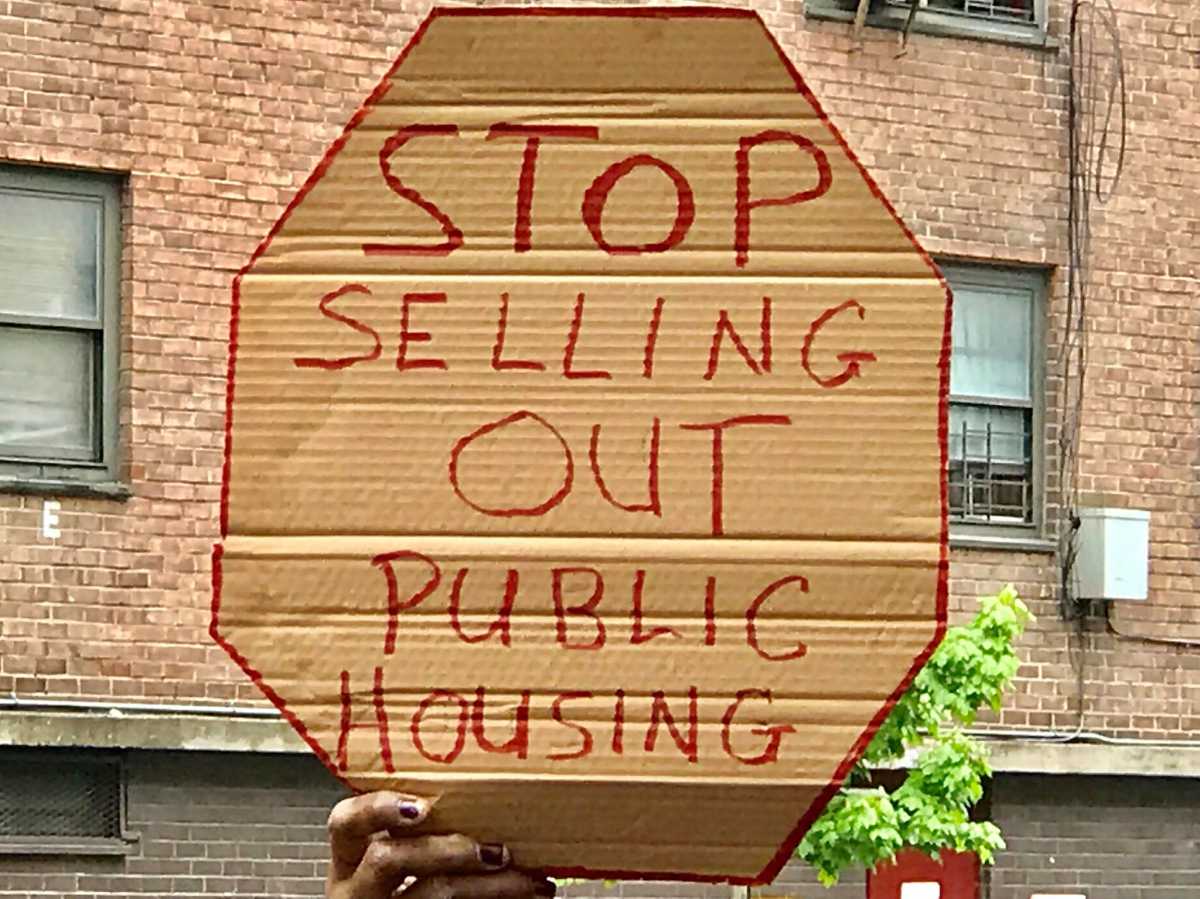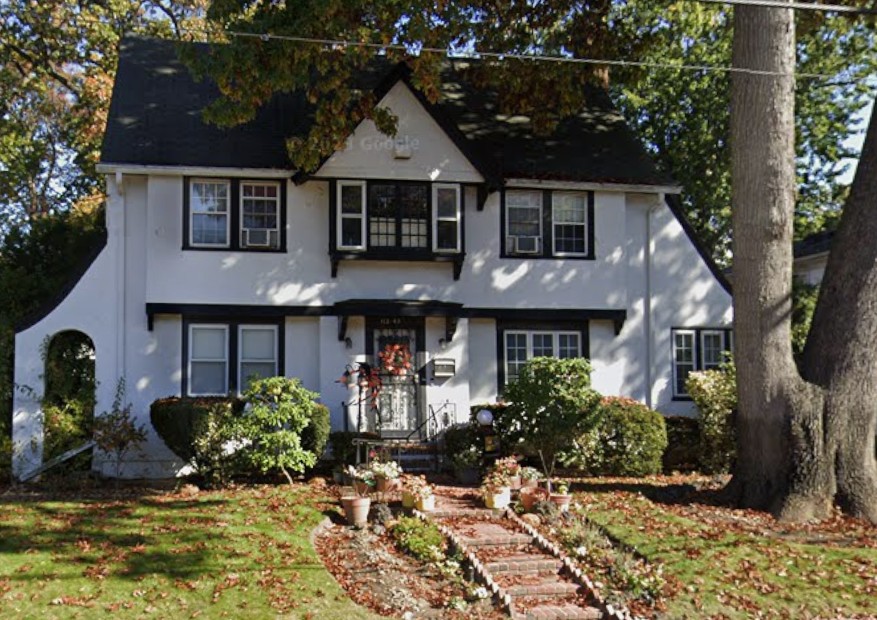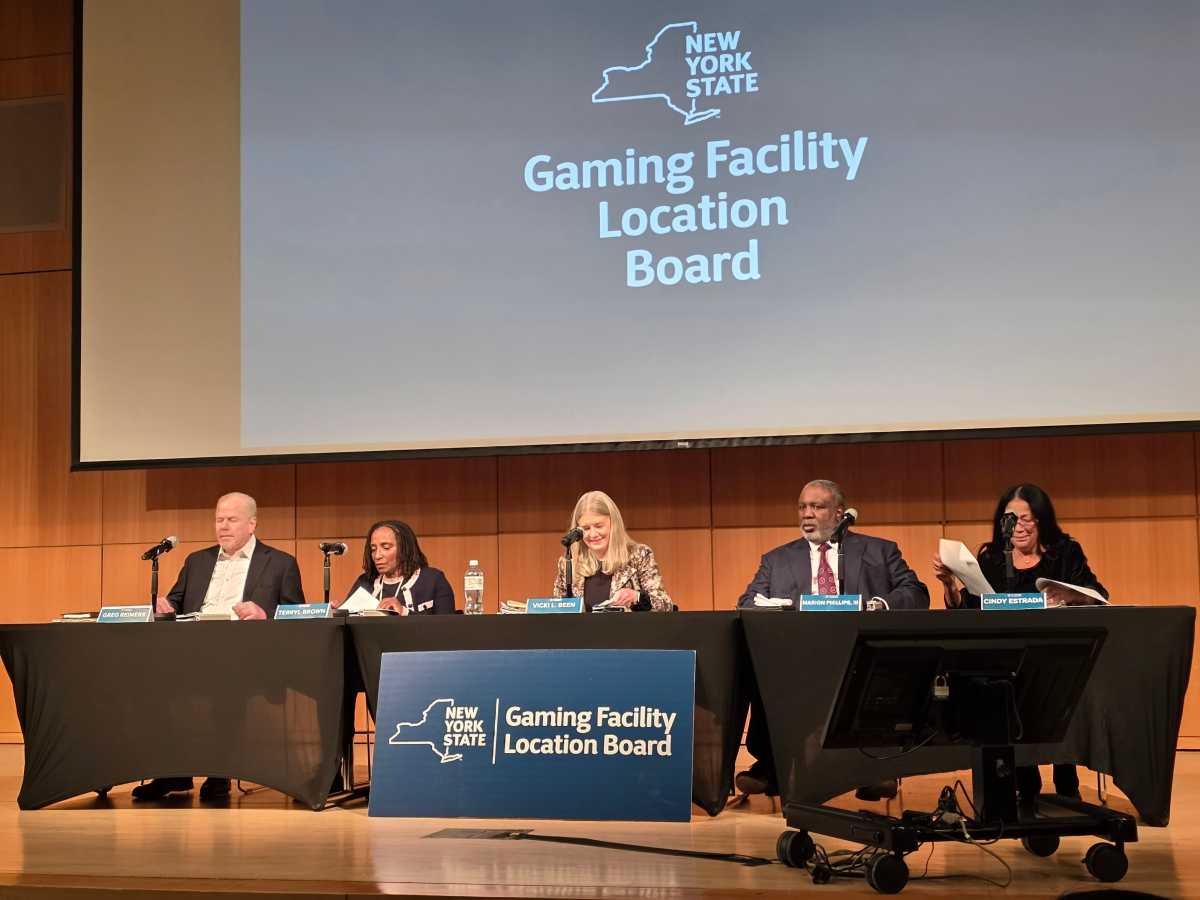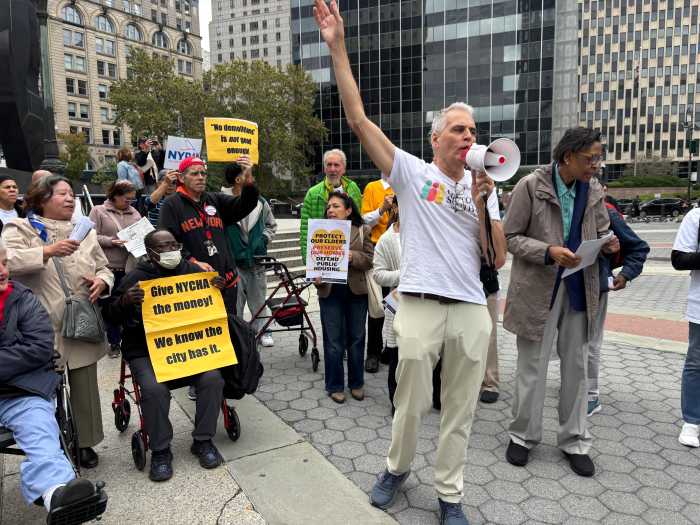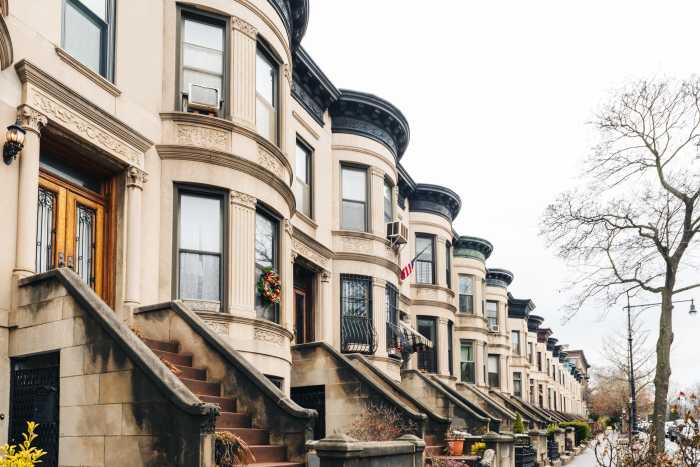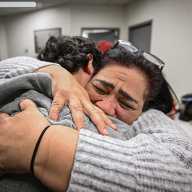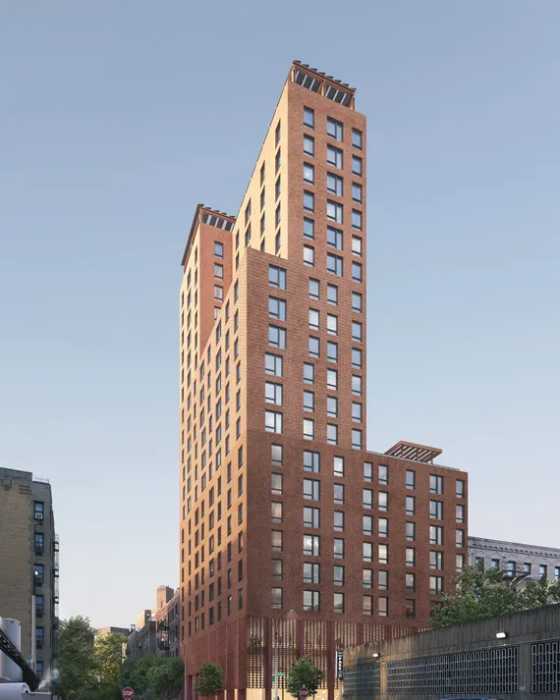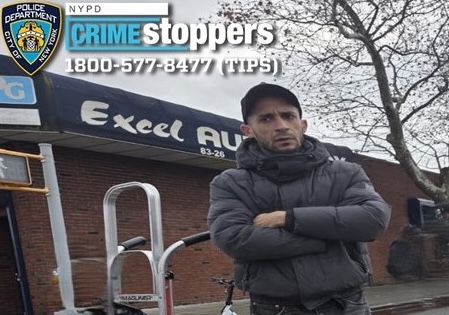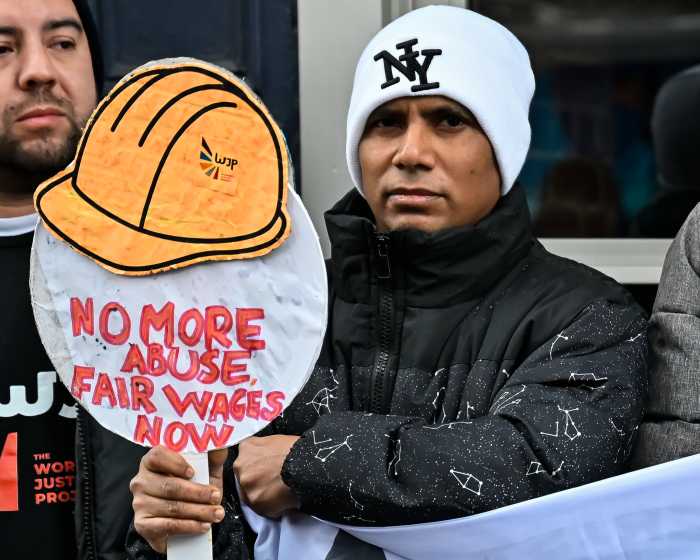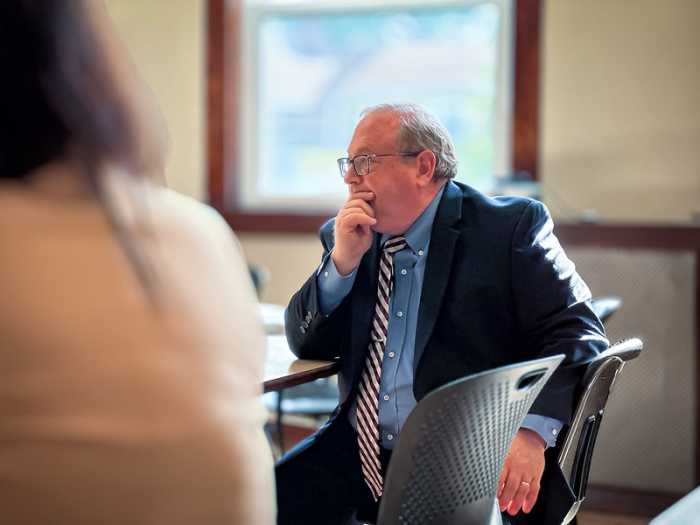BY GABE HERMAN | Activists and residents have been rallying at the Robert Fulton Houses to demand their voices be heard against the city’s proposed plan to let a private developer build on part of the complex’s land.
Groups at the rally included Fight for NYCHA, Community Control of Land Use, and Not One More Block. Noted civil-rights attorney Norman Siegel also spoke at the protest on Sun., April 28, which drew about 60 people, most them local residents at the Fulton Houses.
The Chelsea public housing development includes 11 buildings between Ninth to Tenth Aves. and W. 16th and 19th Sts.
“You can fight back,” Siegel told the Fulton denizens. “You don’t have to accept this,” he said of the city’s plan.
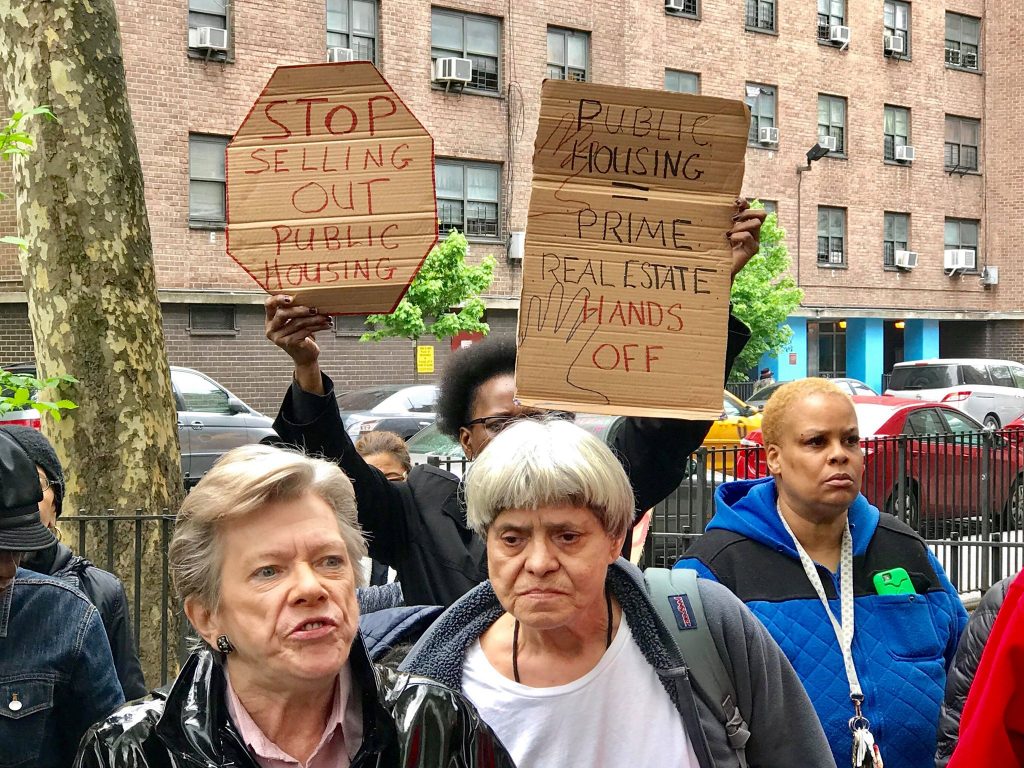
Siegel outlined the administration’s proposal, which he said would include knocking down two buildings and building a tower on a parking lot. He said that, over all, three mixed-income towers would be built, one 14 stories, one 25 stories, and another 28 stories.
The attorney explained that the city and NYCHA would keep ownership of the land but lease it to private developers under a program called RAD, or Rental Assistance Demonstration.
The city hopes to raise funds through the plan for the Fulton Houses, which need $168 million in repairs over the next five years.
Siegel led a chant of “Keep public housing public!” He said the city’s plan would fundamentally change what public housing means.
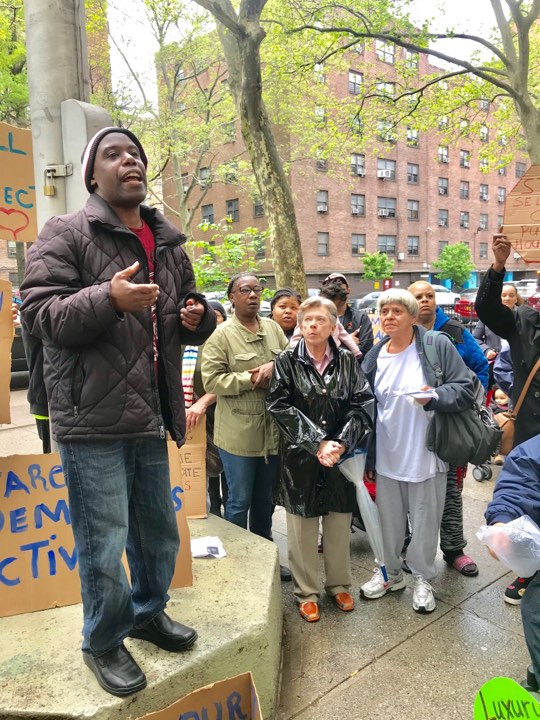
New York was a leader 80 years ago for public housing in America, Siegel noted. The First Houses development, at E. Second and Third Sts. at Avenue A, was one of the first public housing projects in the country.
“And it works,” he said of public housing.
The majority of the NYCHA residents should have to agree to the RAD plan for it to be implemented, Siegel said.
“We have to bring people together,” he stressed. “Lawyers, organizers, but all of you, to tell people that there’s strength in unity.”
Siegel asked why money couldn’t be raised through a 1 or 2 percent tax on the gross profits of corporations with more than 1,000 employees. And he asked what would happen if President Trump decided to stop funding the RAD program, or if rents wound up being higher under RAD than public housing rents?
“There are serious problems here,” he warned.
For a RAD project, two public meetings are required to be held, Siegel noted. But he and everyone in the crowd said that there had been none yet, and the mayor and city officials had not even come to meet with residents, either.
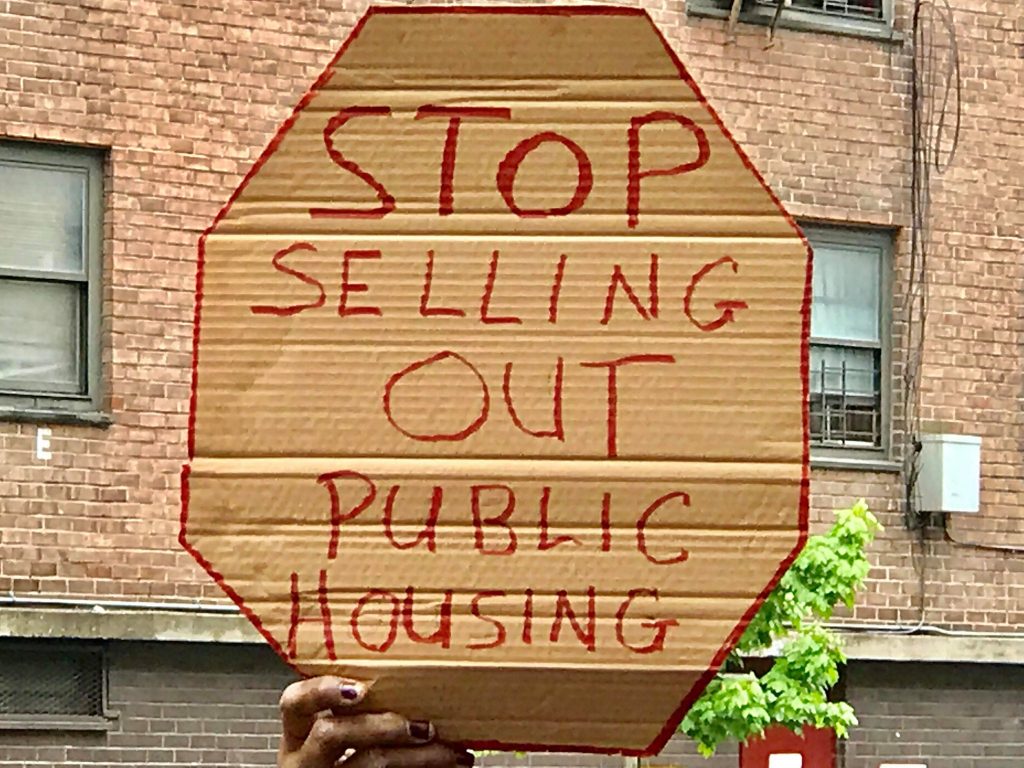
Siegel said a coalition needed to be formed, to communicate with the city and collect facts.
“We have to confront them,” he said.
Also at the rally was Marni Halasa, a Chelsea resident for 27 years who founded the advocacy group Community Control of Land Use.
“The community needs to not just have input in land-use decisions, they should have the final say,” Halasa told the rally. “NYCHA residents need to come together and organize, to determine your own destiny.”
In a comment written to this paper, Halasa noted that under 26,000 previous RAD conversions of public housing apartments, 57 percent experienced a rent increase, according to a 2018 report by the Government Accountability Office. This can lead to eviction for those unable to pay, Halasa wrote, and especially impacts seniors and disabled people on fixed incomes.
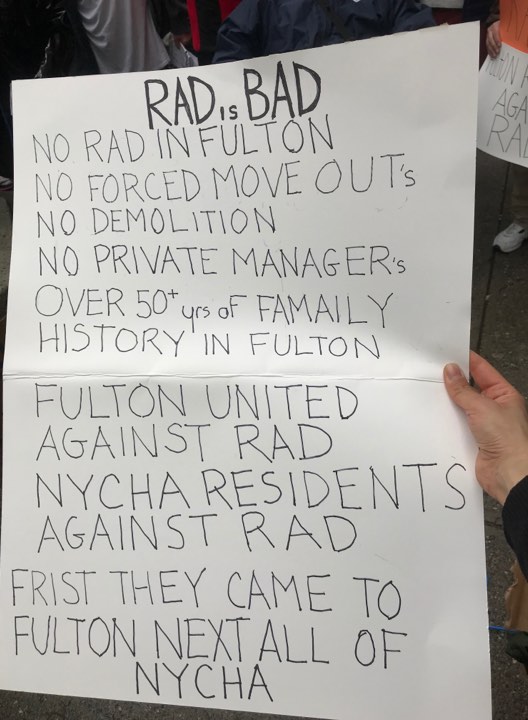
“We believe this is the next big fight of ordinary citizens against luxury development, and we will win,” she said. “New Yorkers need to understand that this phase is the Fulton Houses, but the next phase will be the Chelsea Elliott Houses, then the next phase will be the permanent affordable housing complexes of Penn South — and the next leading even to perhaps your own apartment. Luxury development knows no bounds and has no morality when it comes to displacement,” the activist said.
One of the Fulton Houses residents who spoke at the rally, Amelia, has lived there four years, but said most residents had been there at least 30 years, and that there was a strong sense of community.
“I was embraced by this community, and you don’t see that anymore,” she said at the April 28 rally. ‘We cannot afford to let them create more homelessness. Don’t let them take away our sense of community. Without us, there is no community. We create the diversity of this neighborhood.
“They’re going to make promises and then the promises will go out the window when elections are done,” she added. “De Blasio was running with the black vote, got in and then stabbed us all in the back.”
She said the community needed to branch out and encourage people to come to more rallies. Siegel echoed this sentiment, saying there should be more meetings, with attendance growing at each one.
And Siegel said activists would go to court if the city doesn’t follow the rules of public engagement.
“Take one step at a time and begin now,” he advised the crowd about organizing. “It’s not right for the mayor to tell you your future. You have to decide what your future is.”



